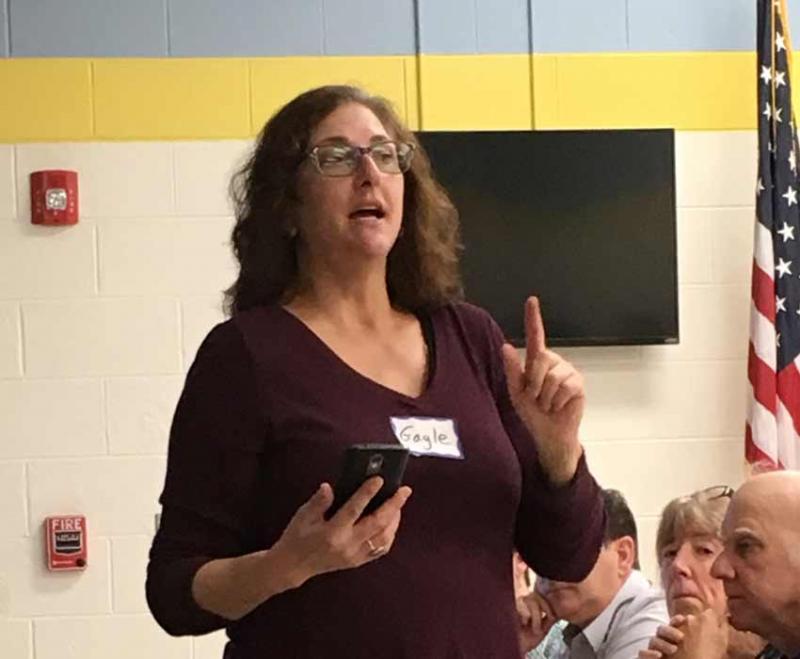Milton Sustainability Committee recently hosted the first of five public workshops centered on community resiliency to assess and develop a plan for sustainability in light of climate change and future growth.
“Today’s impact will be about how a town can improve resiliency when sea level rise impacts development,” said Gayle Hoffman, project manager for Southeast Rural Community Assistance Project, which helped fund the event. “For example, the water treatment facility is not in the best place for a water treatment facility, and we are planning to work on that.”
University of Delaware scientist Phillip Barnes told the gathering that in his role with the Institute of Public Administration, he looks at environmental issues and their trajectories far into the future. While issues such as sea level rise and global warming may seem negligible now, Barnes said evidence that change is coming is overwhelming.
“I think this is the most important topic in the world,” he said. “All communities need to address this somewhat overwhelming topic of climate change and sea level rise. This topic has tremendous implications for all the things you do as public servants and in your home.”
Barnes and colleagues displayed maps that show it’s likely sea level rise will impact downtown Milton and the water treatment plant as high tides in the Broadkill River continue to swell as a result of global warming and even full moons.
“Data shows humans have been transforming the global climate,” Barnes said. “If we look into the future until the end of the century, we see the temperatures continue to rise. There are many implications from this.”
Department of Natural Resources and Environmental Control Climate and Sustainability Program Manager Susan Love agreed with these predictions and offered four strategies to cope with sea level rise: building sea walls; making accommodations through structural adaptations; avoiding exposed areas known to flood; and making a full retreat, moving existing assets away from flood-prone areas.
“Land-use decisions and zoning decisions, these are up local governments, and that’s why we are here today, planning and preparing,” Love said. “The state strategy has been to work with the willing, and we are working on this together. We are all sort of muddling through, but we can do lots of things that are incremental that will keep Milton a safe place to live.”
Milton Sustainability Committee Co-chair Michala Coffaro said funds supporting sustainability planning are courtesy of a $28,000 grant from DNREC and the Southeast Rural Community Assistance Project.
Milton Sustainability Committee will hold a second public workshop, focused on energy efficiency, on Saturday, Feb. 17. Registration is slated to begin at 10 a.m. in the Milton Public Library meeting room.





















































